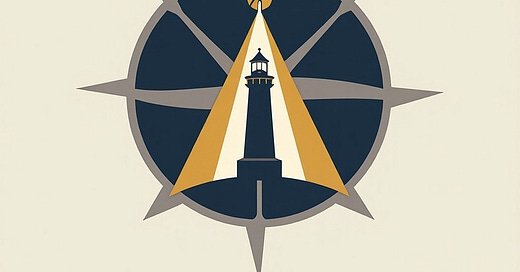🧭 Introduction: A Sister’s Story
My sister-in-law—God rest her soul—worked at Walmart for 26 years. She showed up. She learned the systems. She trained others. She kept the store running. And when the store manager gave her access to his email—so she could help keep things from slipping through—she said yes. Not because she was scheming. Because she cared.
Then came a change in management. New rules. New interpretation. Suddenly, what she had done for years as a trusted team member was considered a violation. She was fired. For cause.
No warning. No second chance. Just gone.
Her life changed that day. The rhythm. The worth. The friendships. The purpose. Work, for her, wasn’t just about a paycheck. It was part of her identity.
And now we’re repeating the pattern—on a scale too large to fully grasp. Entire agencies gutted. Civil servants purged. AI systems replacing human oversight. Public sector employees laid off, labeled inefficient, outdated. All in the name of “saving money.”
Meanwhile, Congress advances a budget that will add $5.7 billion to the deficit. So gutting the federal government isn’t about saving money or reducing the deficit is it. We are destroying what took generations to build—in minutes.
This isn’t mindfulness. It’s hubris.
This isn’t innovation. It’s amnesia.
🧠 The Ghost of the Luddites
In the early 1800s, skilled textile workers known as Luddites destroyed mechanized looms that threatened their livelihoods. They weren’t afraid of machines. They were afraid of a system that would use machines to erase people.
Their rebellion wasn’t against progress—it was against being discarded.
We’ve come a long way since then. But the feeling hasn’t changed.
When we build systems that see labor as a cost instead of a contribution, we forget the value of dignity. And when we forget dignity, we lose the very thing that makes progress worth pursuing.
✝️ Joy in One’s Work
In Ecclesiastes, the writer says:
“There is nothing better than to find joy in one’s work.”
Work was never meant to be punishment. It was meant to be practice—of patience, of purpose, of service.
But joy in work requires respect. A sense that what you’re doing matters. And a trust that your efforts will not be tossed aside the moment a new line in the budget needs balancing
🤖 Speed Without Soul—But Not Without Choice
Today, artificial intelligence performs in seconds what once took days. It’s fast. Efficient. Precise.
But it is not wise. It is not human. And it is not accountable. Remembe Bob? The veteran who needs medical attention now not later and not scheduled by a program. Bob need help from a person capable of compassion and feeling not a dismissal because the calendar is full.
We’re not just automating tasks. We’re automating judgment—who gets hired, who gets flagged, who gets forgotten. Which veteran gets to see the doctor nd when. And now, AI is being quietly used to justify the removal of thousands of probationary government workers—“streamlining” what was once service.
We’re told this is about rooting out the deep state. But what is that, really?
The "deep state" is not a thing. It’s a label. A tool of retribution. A narrative used to turn public servants into enemies, and to make accountability look like betrayal.
And it’s working—because fear spreads faster than facts.
But here’s the truth: most people in government jobs aren’t trying to control us. They’re trying to help us. They file the forms. Process the benefits. Answer the phones. They keep the wheels turning while the cameras point elsewhere.
What do we lose when we erase them?
What do we lose when we erase each other?
🌱 Choosing People Over Speed
A local store—family-run—recently upgraded to a digital inventory system. But they chose to keep their longtime employee.
“She knows the regulars,” the owner said. “That’s not something you automate.”
That’s mindfulness. Not fear. Not resistance to change. But recognition—that dignity is more valuable than efficiency, and that people are worth protecting.
🛠️ Hope in Reshaping the Narrative
It’s easy to repeat the headlines. To repost the rage. To believe what your phone flashes before you. But maybe mindfulness starts by asking:
Is this what I truly think? Or just what I’ve been led to think? Do I want to think?
The power of this moment is not just in fighting for what we had—but imagining what could come next. A future where work is not just protected, but respected. Where technology is a tool, not a replacement. Where unity is not a slogan, but a daily practice.
🛤️ Closing: What Do We Really Want?
Do we want revenge—or renewal?
Do we want division—or dignity?
Do we want to win arguments—or preserve each other?
The mandate we’ve been given isn’t to punish.
It’s to rebuild.
So here’s the question I leave us with:
What kind of future are we willing to fight for—together?
This is Us.
Join the conversation at this-is-us.org






Share this post